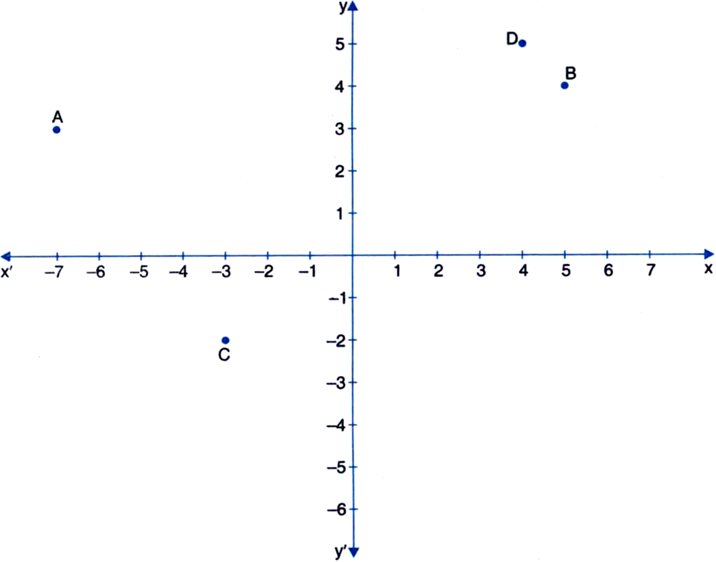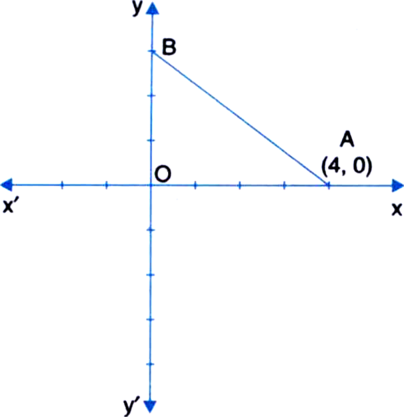 Short Answer Type
Short Answer Type(Street Plan): A city has two main roads which cross each other at the centre of the city.
These two roads are along the North-South direction and East-West direction. All the other streets of the city run parallel to these roads and are 200 m apart. There are about 5 streets in each direction. Using 1 cm = 200 m, draw a model of the city on your notebook. Represent the roads/streets by single lines.
There are many cross-streets in your model. A particular cross-street is made by two streets, one running in the North-South direction and another in the East-West direction. Each cross-street is referred to in the following manner: If the 2nd street running in the North-South direction and 5 th in the East-West direction meet at some crossing, then we will call this cross-street (2, 5). Using this convention, find:
(i) how many cross-streets can be referred to as (4, 3)?
(ii) how many cross-streets can be referred to as (3, 4)?
Write the answer of each of the following questions:
(i) What is the name of horizontal and the vertical lines drawn to determine the position of any point in the Cartesian plane?
(ii) What is the name of each part of the plane formed by these two lines?
(iii) Write the name of the point where these two lines intersect.
See figure and write the following:
(i) The coordinates of B.
(ii) The coordinates of C.
(iii) The point identified by the coordinates (-3, -5).
(iv) The point identified by the coordinates (2, - 4).
(v) The abscissa of the point D.
(vi) The ordinate of the point H.
(vii) The coordinates of the point L.
(viii) The coordinates of the point M.
(i) B → (- 5, 2)
(ii) C → (5, - 5)
(iii) E
(iv) G
(v) 6
(vi) - 3
(vii) L → (0, 5)
(viii) M → (- 3, 0)

(i) Coordinates of point A
(ii) Abscissa of point D
(iii) The point identified by the co-ordinates (5, 4)
(iv) Co-ordinates of point C

The perpendicular distance of a point from the x-axis is 2 units and the perpendicular distance from the y-axis is 3 units. Write the coordinates of the point if it lies in the:
(i) I quadrant (ii) II quadrant
(iii) III quadrant (iv) IV quadrant

